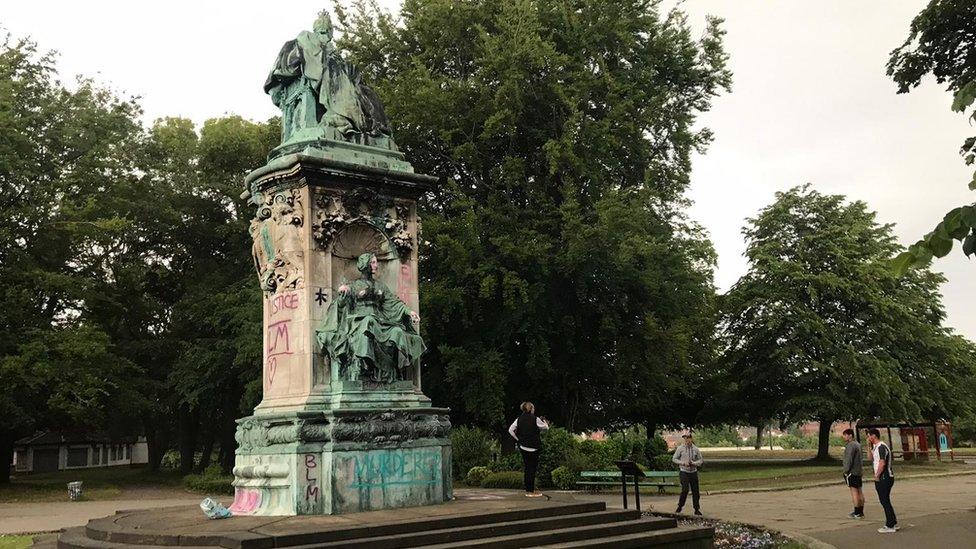Leeds statue study could mean more inclusive public art in the city
- Published
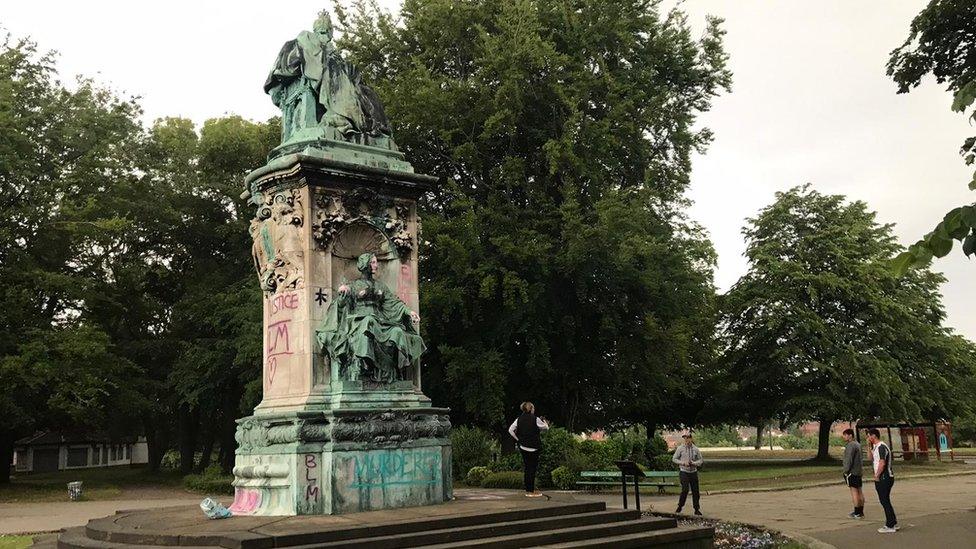
The words 'murderer' and 'racist' were sprayed on the statue of Queen Victoria in Leeds in 2020
A new study of statues in Leeds could lead to the city's public art being more inclusive, according to the academic leading the review.
A council evaluation carried out amid Black Lives Matter protests in 2020 found most people wanted the city's statues to stay where they were.
It also found no historical figures connected with the slave trade but that the city's statues were rarely diverse.
Dr Martin Zebracki said: "This is about how to decolonise public art".
Dr Zebracki, associate professor of critical human geography at the University of Leeds, said he wanted to expand the research and look into how decisions about what is created can be more inclusive in future.
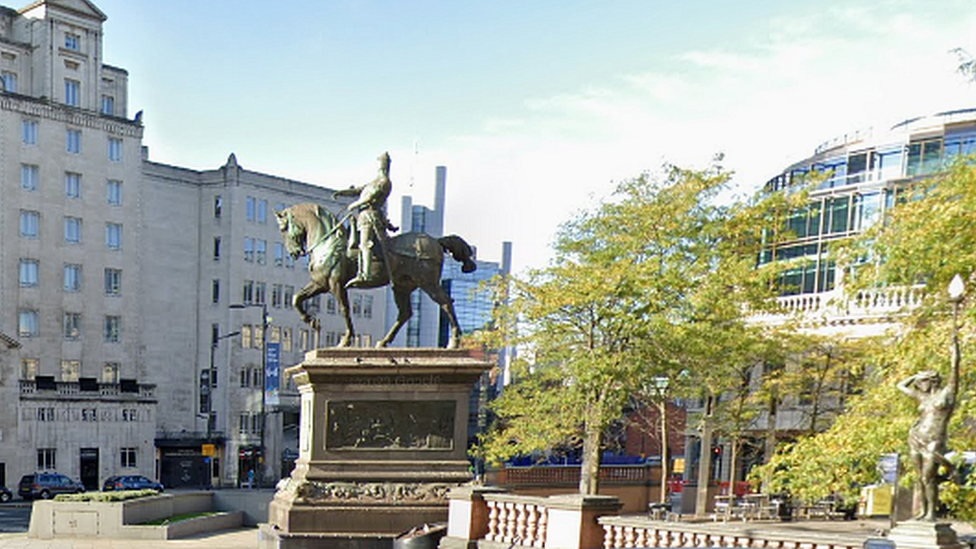
The new review is due to take stock of the representation of social diversity in public art
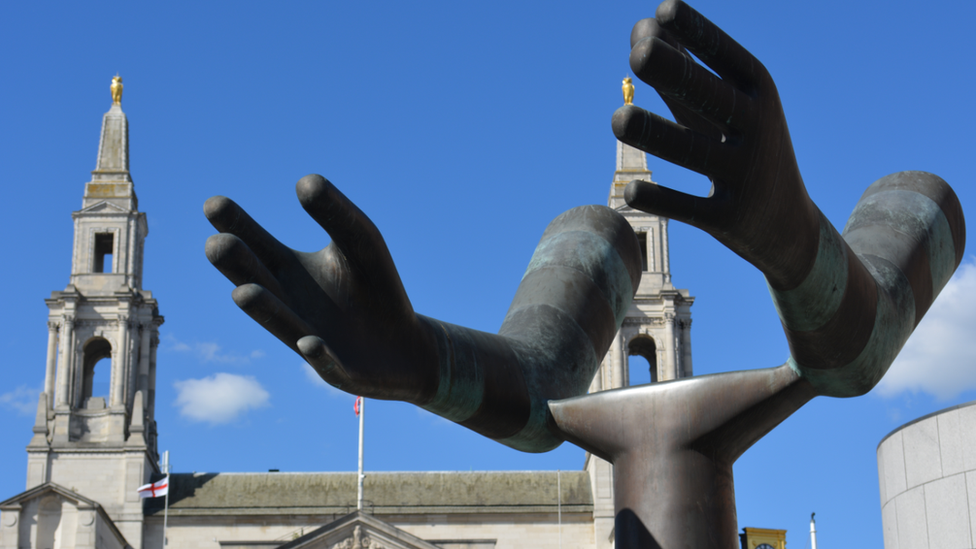
Not all public sculpture in Leeds is a statue
"We have noticed there is a desire to change to have a more inclusive public realm", added Dr Zebracki.
The Decolonising Sculpture for Urban Social Justice review is to be undertaken by Leeds University in partnership with Leeds City Council.
The study will be conducted by a PhD student and is due to start in October, said the Local Democracy Reporting Service., external.
The original council review, carried out by by Leeds's first black councillor Alison Lowe, followed protests and the toppling of a statue of Edward Colston, a slave trader, in Bristol.
It did not recommend any removal of Leeds's statues, and found there was "no groundswell" of support to do so, with only around 10% of those consulted requesting the council pulled down any statues.

Follow BBC Yorkshire on Facebook, external, Twitter, external and Instagram, external. Send your story ideas to yorkslincs.news@bbc.co.uk, external.
Related topics
- Published9 September 2020
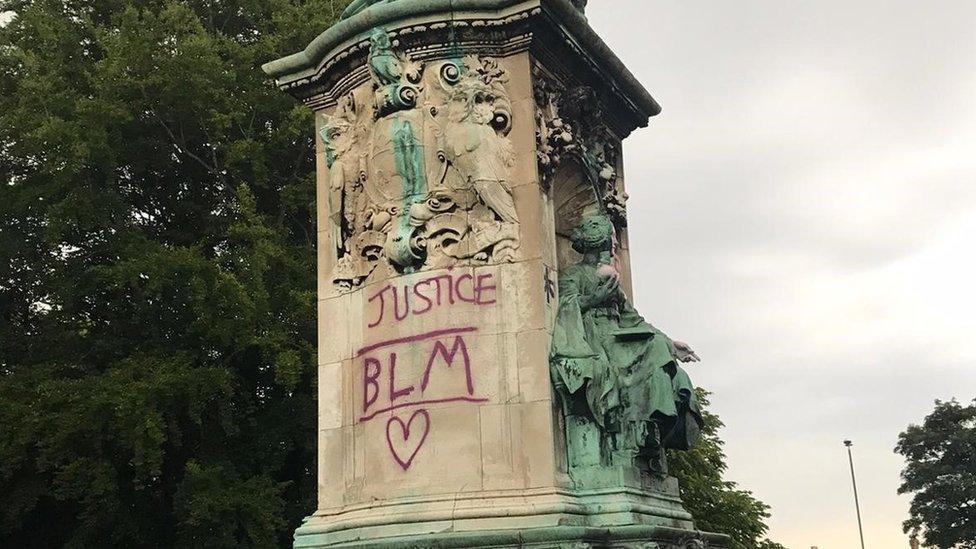
- Published10 June 2020
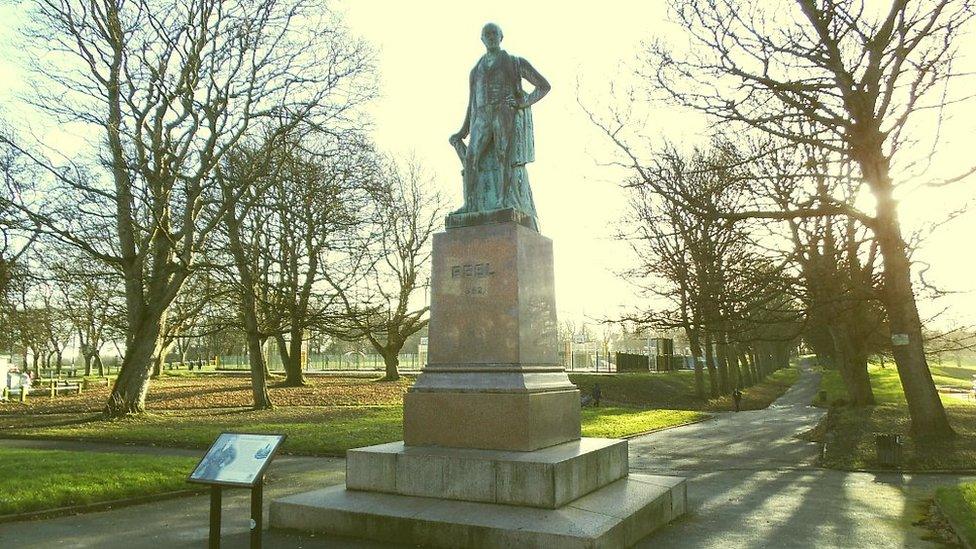
- Published9 June 2020
